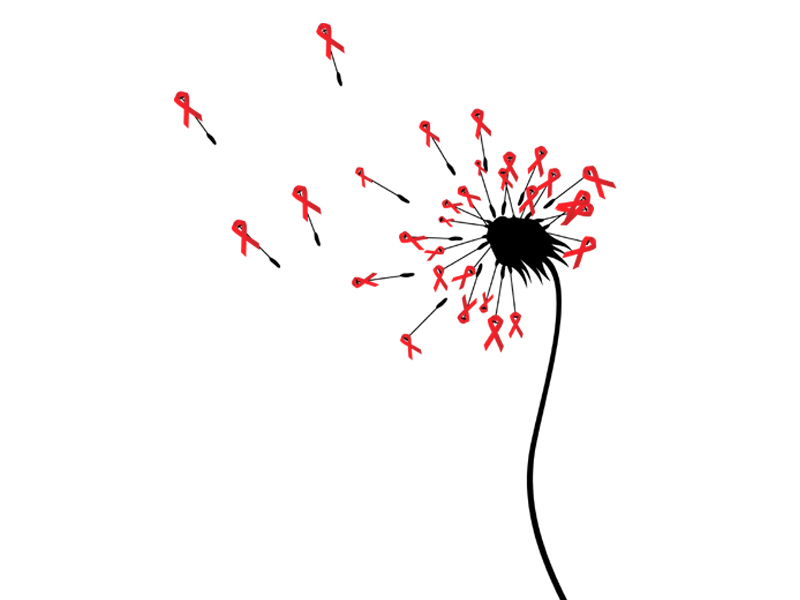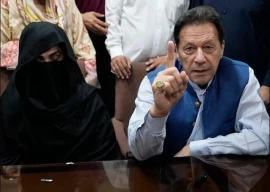
They met at the office of a non-governmental organisation. A man and a woman going through similar marginalisation and ignorance from society. Both hoping to come to terms with the possibility of their HIV infections turning into full blown Aids.
Today, Iqbal and Rubina are a happy couple. The fact that they are HIV positive has not made them give up on life. They are, in fact, using their awareness about the virus and Aids as a motivation for helping out others in a similar predicament. The aim of their life is to work for other HIV-positive people whom they consider their ‘community members’. Both are real fighters. They face societal stereotypes and myths alongside battling the deadly disease for the last seven years.
Iqbal is Rubina’s second husband whom she married in 2009, after the death of her first husband who left her with four children and HIV. Once a drug addict, Iqbal gave up the habit once he discovered he was HIV positive.
“Society ignored us but we accepted each other. We share the same miseries,” Iqbal told The Express Tribune. “Now, we relate to similar pain others like us are going through. We work for them and disseminate awareness among our community so they can live better lives,” the couple said, adding that “HIV positive people share the same kind of pain.”

Both are working with an NGO, Care and Support Welfare Organisation (CSWO), as volunteers. On the World Aids Day, the couple appeals to people not to hate the patients of Aids, but the disease. “We haven’t chosen the disease willingly. It was incidental. So many of us suffering from HIV or full blown Aids are paying for a single slip, and will pay till death. Our community needs care, affection and respect,” said a teary-eyed Iqbal.
According to a CSWO official, there are roughly 104,000 HIV positive people across the country, including around 45,000 in Sindh. This figure includes unregistered cases.
According to the cumulative data shared by the Sindh Aids Control Programme (SACP), there are over 6,000 registered cases across Sindh alone. “Karachi is at the top in the province, followed by Larkana and Hyderabad,” disclosed Dr Muhammad Ahmad Kazi, the provincial programme manager. “The lowest is Naushehro Feroze with just one case.”

Through the enhanced programme, the government has set up surveillance centers across the province so that hidden cases could be identified easily. Eleven NGOs are also part of the government programme across Sindh. “We have identified over 800 new cases this year,” Dr Kazi added.
There is a referral laboratory established at the Civil Hospital Karachi where centres established at district headquarters send blood tests of suspected patients.
The injecting drug users, transgenders or same sex partners, and female sex workers are three of the most vulnerable groups at risk of contracting HIV. The most high-risk behaviour persons are sex workers and long distance truckers. “We have to take care of identified patients and measures to prevent others from getting the virus,” Dr Kazi said.
Director of College of Family Medicine, Dr Abdul Ghafoor Shoro, said that a patient with the HIV virus or Aids gets TB quickly. “It is hard to diagnose TB when a person has Aids, and it’s even more difficult to treat him. The chances of survival reduce when both diseases go parallel.”
Referring to the data from the government lab, Dr Farhat Sikandar, CSWO president, said a total of 6,347 cases have been diagnosed till September 20, including 227 of full-blown Aids and 217 deaths since the start of the programme in 1994. Karachi accounted for 74 per cent, Larkana for 7.7 per cent and Hyderabad for 1.8 per cent of the total diagnosed cases.
“It is a social taboo and people avoid to be tested or don’t share information. Social attitudes isolate them,” Dr Sikandar said. “The harsh behaviour starts from family and friends.” She also said that most of the people can’t afford to travel to urban cities like Karachi for medicine.
“We have to change our attitude towards them. They could live normal lives,” Dr Kazi stressed. Giving an example of a pair of transgenders from Hyderabad, he said that they were formerly involved in sex work. “They have given up their old ‘trade’ and set up a beauty parlour and an embroidery shop. They live with respect now. These people deserve our attention,” he added.
Published in The Express Tribune, December 1st, 2013.

















COMMENTS
Comments are moderated and generally will be posted if they are on-topic and not abusive.
For more information, please see our Comments FAQ